Question And Answer
Publications
Articles, publications, books, tools and multimedia features from the U.S. Institute of Peace provide the latest news, analysis, research findings, practitioner guides and reports, all related to the conflict zones and issues that are at the center of the Institute’s work to prevent and reduce violent conflict.
Counting the Costs of Somali Piracy
Authored by USIP's Raymond Gilpin, this new working paper offers practical strategies to mitigate the rising costs of Somali piracy and lay the foundation for lasting peace. The upsurge in attacks by Somali pirates between 2005 and mid-2009 reflects decades of political unrest, maritime lawlessness and severe economic decline which has dire implications for economic development and political stability in Somalia.

The Day After Project
The Day After project brought together a group of Syrians representing a large spectrum of the Syrian opposition—including senior representatives of the Syrian National Council (SNC), members of the Local Coordination Committees in Syria (LCC), and unaffiliated opposition figures from inside Syria and the Diaspora representing all major political trends and components of Syrian society—to participate in an independent transition planning process.
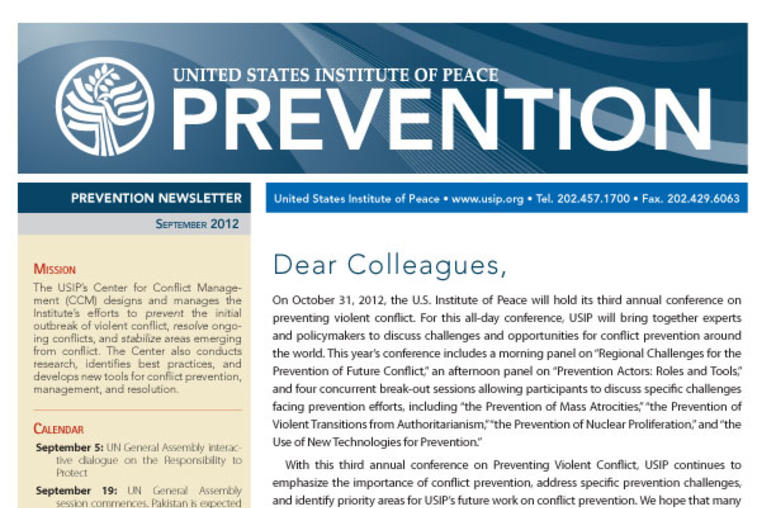
USIP Prevention Newsletter - September 2012
The September 2012 Prevention Newsletter features a spotlight on The Syrian Civil War: Threatening Lebanon's Fragile Stability: Syria's year-and-a-half long internal strife has not only challenged Lebanon with tens of thousands of refugees, gun battles on the border and kidnappings, but reignited tensions along Lebanon's own sectarian fault lines.
In Memoriam: Roger D. Fisher
Roger D. Fisher, Harvard professor and giant in the field of conflict management and resolution, died at age 90 on August 25th.
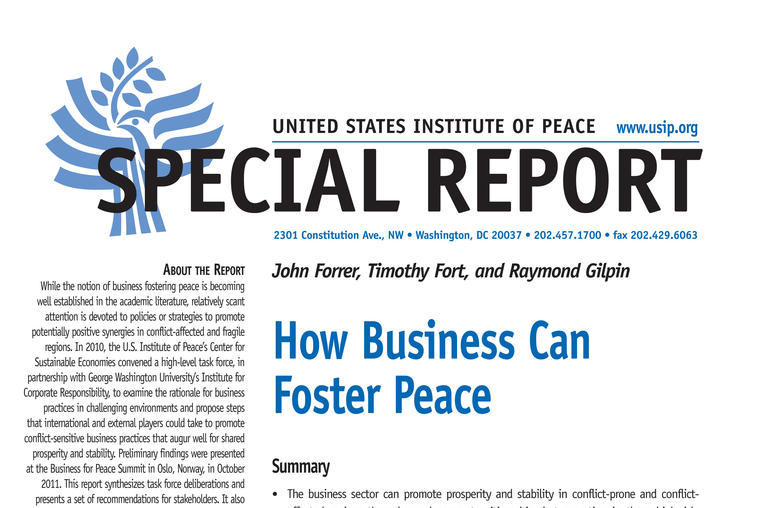
How Business Can Foster Peace
There are many ways businesses can and do promote peace in conflict zones, but smart strategies will take into account the firms’ size, ownership, industry, and the degree to which they are connected to local supply chains.
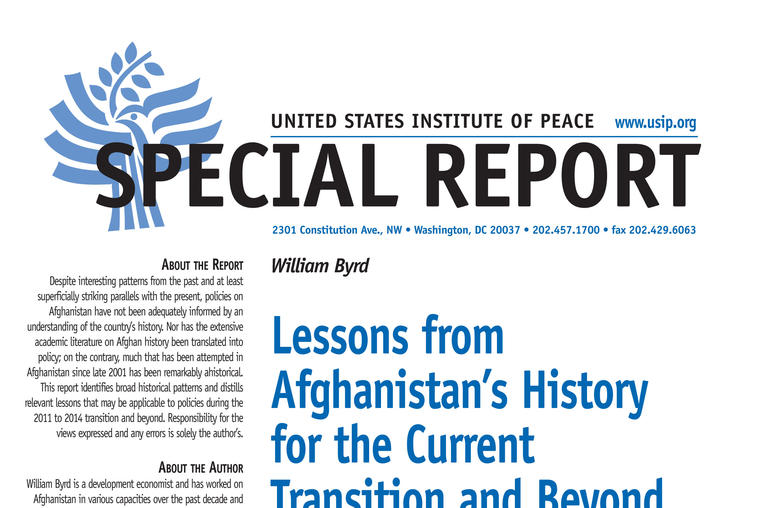
Lessons from Afghanistan’s History for the Current Transition and Beyond
Contrary to some views, Afghanistan has been and can be governed effectively and be politically stable. But history indicates that overly ambitious and rushed modernization efforts are likely to face sharp domestic reactions that can set development back, sometimes for decades.

The U.S. Surge and Afghan Local Governance
The U.S. civilian and military surge in Afghanistan aimed at transforming local governance, but it fell short because the strategy assumed that progress on security and governance would go hand in hand and that bottom-up progress would be reinforced by the national government. Going forward, the international community should focus on a few key governance issues to address and use the Strategic Partnership Agreement as a vehicle for long-term planning.
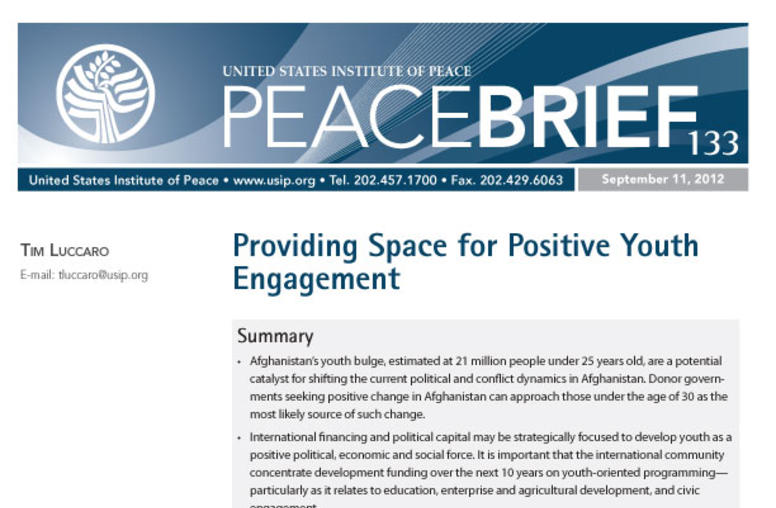
Providing Space for Positive Youth Engagement
Tim Luccaro, USIP’s program officer in Kabul, discusses USIP’s work with Afghan youth volunteers to build greater community awareness of civic and legal rights, highlighting the need for greater recognition of Afghan youth’s role and participation in political and peace processes in Afghanistan.
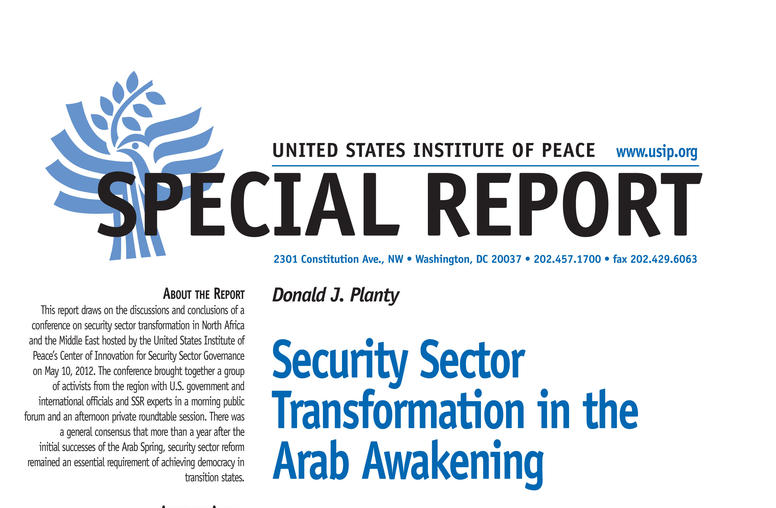
Security Sector Transformation in the Arab Awakening
Countries transitioning to democracy must change old models of organizing the police, armed services, and intelligence services, which typically were characterized by mistreatment of the public, for models that stress transparency, accountability, and citizen involvement. Yet each new government in the Middle East and North Africa must tailor its reforms carefully and patiently in order to avoid backlash among security services.
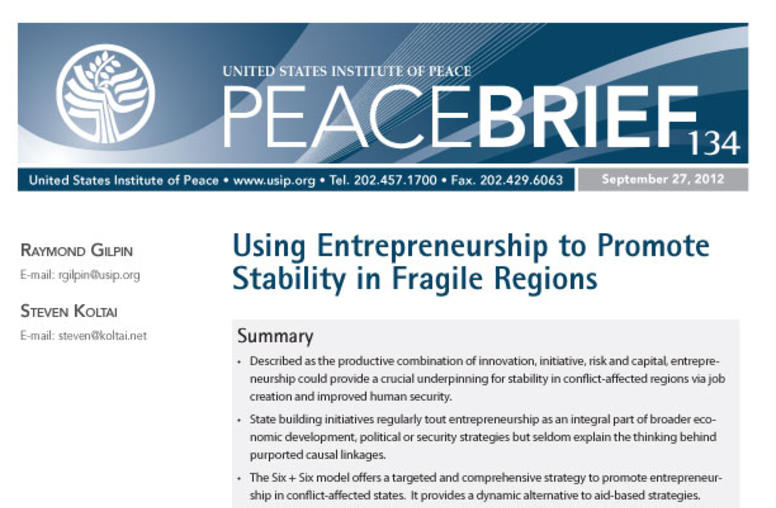
Using Entrepreneurship to Promote Stability in Fragile Regions
USIP’s Center for Sustainable Economies hosted a series of blogs on entrepreneurship in conflict-affected states on the International Network for Economics and Conflict from March to July 2012. This Peace Brief synthesizes the main conclusions and pertinent lessons for policymakers and practitioners.